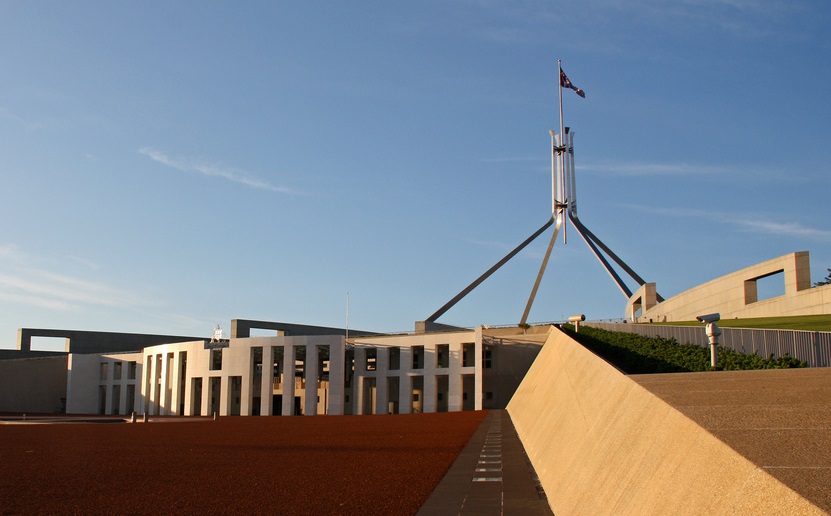
Tony Abbott is experiencing the same communication difficulties in government that he experienced in opposition – what has changed is the loss of an unpopular incumbent and an intensification of the spotlight on the Prime Minister.
Political year in review 2013.
The political landscape has shifted dramatically since last year’s September Federal election, with the new conservative government putting the prospect of a double dissolution election this year in doubt. While Mr Abbott was effective in communicating his critique of the former Labor government, his weakness in advocating his own policy, and handling criticism under pressure, was always a problem. Until now this rarely compromised the Coalition’s political performance due to the lack of scrutiny in Opposition, and the presence of a more unpopular incumbent. A series of surveys have put the government behind the ALP on two-party preferred polling, raising serious questions about the viability of the government’s strategy to force an early election over the repeal of the carbon price.
End of a manufacturing era.
Meanwhile, the recently announced collapse of Holden’s manufacturing after 2017 appears partly a result of planned cuts to Federal assistance and two microeconomic problems affecting manufacturers generally: the chronic high cost of labour, and the acute spike in the Australian dollar. Holden’s demise has been long-feared. Surprisingly, the government appears politically under-prepared for this scenario, despite subsidy cuts being long-running Coalition policy. A broad protectionist vote endures in Australia, surviving silver-tongued attempts by Paul Keating and Peter Costello to coax the public’s conversion to free trade. This group’s influence extends from manufacturing to foreign investment, Direct Action and the role of Qantas. This latest chapter is a major event in Australian political history. How the government tackles it going forward will help define its legacy.
Same-sex marriage.
The High Court’s decision to quash the ACT’s same-sex marriage laws, while disappointing for gay rights activists, is unsurprising. The Court has tended to rule in the Commonwealth’s favour. While a different result would have embarrassed the government, the decision means that same-sex marriage will not go away. Rather, the government perhaps missed an opportunity to let the issue slide off its plate. Same-sex marriage is rapidly becoming personalised in the minds of many voters as it becomes romanticised in popular culture. Expect this angle to be explored by gay rights advocates over the coming years, with accusations of “homewrecking” emerging against conservative opponents of reform. The assessment of some analysts that this issue, like the Republic, is cyclical and will fade in public importance perhaps underestimates the staying power of emotive issues compared to abstract ones such as the Republic.
Budget.
Looking ahead, the government’s Tax White Paper is due this year. Crucially, the GST has been included in its scope. Given the near-consensus among economists that the GST should be either raised or applied to currently exempt items such as food, the Paper will probably recommend either one or both of these options. If the government doesn’t recover strongly in public polling before then, it will likely dismiss GST changes out of hand. Even if it does regain political momentum, the Graincorp decision suggests a risk-averse approach.
Economist Judith Sloan recently claimed that the Coalition “likes spending as much as Labor: they just like to spend on different things.” The government’s response to the upcoming Commission of Audit, which will likely recommend massive spending cuts, will put that claim to the test. Expect the government to play to its base, as all governments do, and potentially take the opportunity to cut social programs popular with the Left, partly for fiscal reasons and partly as an extension of the so-called ‘culture war’.
Budget revenues will likely only deteriorate in the near-term, with rising unemployment, deficits and debt combined with slower growth and harsh budget cuts. It turns out Labor was right; the problem was too little revenue, not just too much spending. The conversation needs to shift to what we tax, not just how much we spend.
Things become muddier on the carbon price. Failing to repeal it would be a massive blow to Abbott politically. Not even American presidents become lame ducks that quickly. But unless polling improves, a 2014 election via double dissolution could be dangerous for the government. Shorten’s strategy of opposing repeal has suddenly gone from crazy-brave to strategic coup, with the potential to psychologically cripple the government no matter what it decides to do on carbon pricing.

